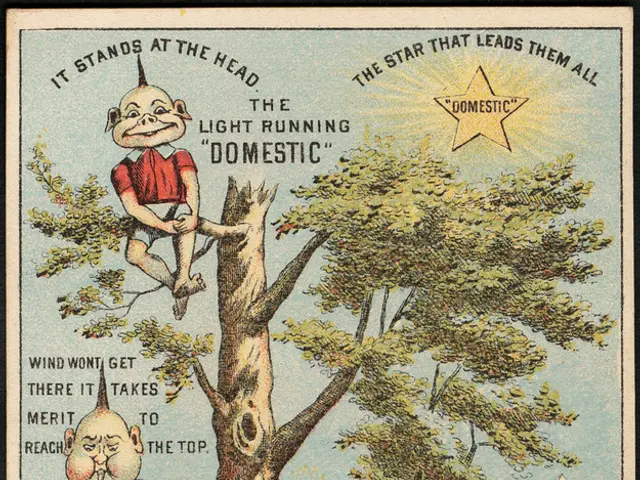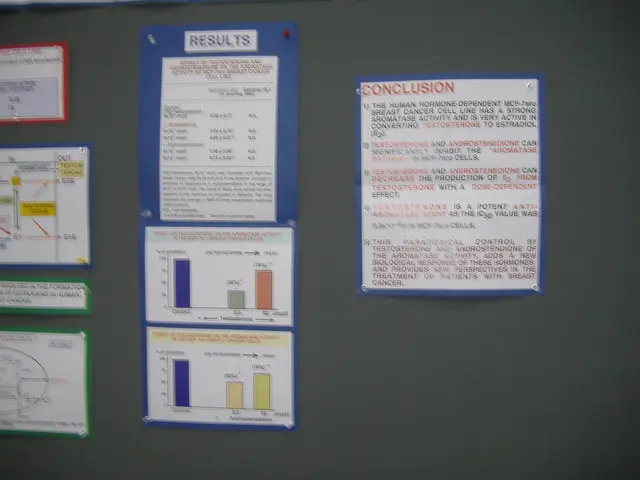Overworking, or the excessive prioritization of job duties over personal life and well-being, not deemed as an adversary.
Criticizing work is nothing new, but a modern concern is the overemphasis we place on it. Long hours, low wages, and mundane tasks are age-old complaints. However, a new critique has surfaced: work should not be the be-all and end-all of our lives. This notion, known as workism, proposes that work, beyond its economic function, serves as our primary source of identity and life's purpose. According to Derek Thompson of The Atlantic, workism is the belief that work not only produces economic value but also defines us, offering identity, transcendence, and community[1][2].
This mentality is most common among the educated elite, for whom work holds a quasi-religious significance[1]. But should we label workism as misguided or even dangerous? Let's delve deeper.
Critics warn of several potential pitfalls associated with workism.
First, societies that adopt a workist mentality often have longer working hours, shorter vacations, and later retirement ages compared to other wealthy nations[1]. This relentless work pace risks burnout and overall health complications.
Second, an excessive focus on work can lead to neglected personal relationships, health, and well-being, potentially resulting in isolation[5].
Third, when the self-worth of an individual is deeply tied to work, the absence of meaningful work or the presence of seemingly pointless jobs can have adverse psychological effects[3].
Fourth, workism may exacerbate inequalities, as the wealthy and highly educated often work longer hours while others struggle to find sustainable employment[1].
However, not all negative consequences are inevitable. Some people find purpose, personal fulfillment, and a sense of community in their work[1]. In some cases, this dedication can lead to increased productivity and innovative ideas. Moreover, work can serve as a platform for establishing meaningful relationships and building a sense of belonging.
Despite these potential benefits, experts urge caution when work takes over one's identity and well-being, especially in situations where work is unfulfilling or poorly managed[1][3][5]. The argument lies in the potential for disillusionment when work fails to deliver on its promises. Critiques such as David Graeber's Bullshit Jobs highlight that not all work provides meaning, and the association of labor with virtue can prove harmful when jobs are perceived as futile or harmful[3].
In conclusion, workism can spawn dedication and meaning, but it carries substantial risks if allowed to consume one's identity and overall well-being—especially in circumstances where work is unsatisfying or poorly managed[1][3][5]. As you navigate your career, remember to keep a balanced perspective and nurture other aspects of your life that bring you happiness and fulfillment.
Want more exclusive insights on a range of topics? Consider subscribing to our monthly ST One Digital service. For S$9.90 per month, enjoy access to subscriber-only content on our website and app, as well as the convenience and freedom of using it on one mobile device, along with a 2-week e-paper archive. Don't miss out on the content that matters most to you! Join our Telegram channel for up-to-the-minute breaking news.
- In the discourse of health and wellness, workism, which prioritizes work beyond its economic function, can potentially lead to longer working hours, shorter vacations, and later retirement ages, thereby increasing the risk of burnout and health complications.
- With workism's emphasis on work as a primary source of identity, an excessive focus on work may negatively impact personal relationships, health, and well-being, resulting in isolation and potential psychological effects.
- Furthermore, careers defined by workism may exacerbate inequalities, as the wealthy and highly educated typically work longer hours, while others struggle to find sustainable employment, leading to feelings of disillusionment when work lacks meaning or is poorly managed.








